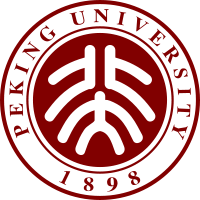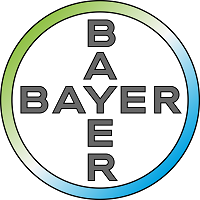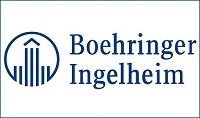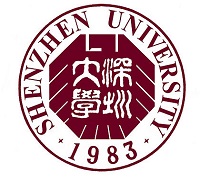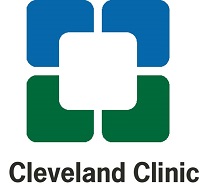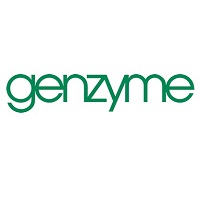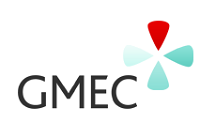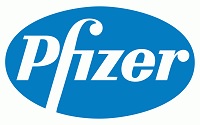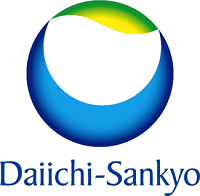 In an era of cutbacks in basic research by Big Pharma, companies are increasingly relying on academic and nonprofit collaborations for basic science and drug discovery research as output and productivity in the industry are declining.
In an era of cutbacks in basic research by Big Pharma, companies are increasingly relying on academic and nonprofit collaborations for basic science and drug discovery research as output and productivity in the industry are declining.
Meanwhile, for academic researchers, these alliances are becoming just as crucial at a time when funding from the U.S. National Institutes of Health--the world's biggest backer of biomedical research--remains tight. It's a symbiotic relationship that we'll likely continue to see for the foreseeable future as Big Pharma's pipeline dries up and federal R&D spending remains static.
The year isn't over yet, but already some big players have formed some notable unions in 2014. Check out the shortlist of collaborations that we've highlighted below. -- Emily Mullin (email | Twitter)
|
Notable academic-biopharma alliances of 2014 |
|||
|
1. Peking University and Bayer Healthcare |
|||
|
Partner: Peking University Recognizing China's valuable place as a growing consumer of pharmaceutical products, Bayer Healthcare and Peking University in Beijing formed a three-year partnership earlier this year to create a joint research center at the school called the Bayer HealthCare/Peking University Center of Translational Research for Drug Discovery. The center will focus on drug discovery in the areas of cardiology, oncology, hematology and gynecological therapy. As part of the agreement, Bayer will provide funding for collaborative research projects and sponsor a Bayer Professorship and Bayer Investigator Awards to promote general research in the life sciences as well as work related to drug discovery in Bayer's core therapeutic areas. Bayer has had its eye on drug discovery in China for years now. In 2009, it opened an innovation center as part of its R&D Center China to boost R&D activities there. More |
|
||
|
2. Duke Clinical Research Institute and Boehringer Ingelheim |
|||
|
Partner: Duke Clinical Research Institute In anticipation of submitting its idiopathic pulmonary fibrosis (IPF) drug nintedanib for regulatory review in the U.S. and Europe, Boehringer Ingelheim teamed up with the Duke Clinical Research Institute, an academic affiliate of the Duke University School of Medicine, to better understand the progression of the disease. IPF is a progressive and fatal lung disease that has no known cause, but certain environmental factors like cigarette smoking seem to increase the risk of getting the disease. As part of the partnership, Boehringer and Duke Clinical Research Institute will launch an IPF registry in the U.S., dubbed the Idiopathic Pulmonary Fibrosis Prospective Outcomes Registry, a long-term study that will collect and analyze data from a large group of patients. The collaboration will also establish a biomarker bank to identify potential blood or genetic markers of the disease--an effort that could eventually help identify at-risk populations. More |
|
||
|
3. UCSF and MedImmune |
|||
|
Partner: University of California, San Francisco As a leading biomedical institute, the University of California, San Francisco, is an attractive partner for Big Pharma. Last year, Pfizer ($PFE) struck a deal with UCSF, and this year AstraZeneca's ($AZN) MedImmune followed suit. Under a three-year agreement, MedImmune will work with UCSF's Clinical and Translational Science Institute to support the university's Catalyst Awards program, which is designed to help UCSF scientists move their research out of the lab and into product development. Specifically, MedImmune is seeking promising research proposals in the therapeutic areas of cardiovascular and metabolic disease, oncology, respiratory, inflammation and autoimmunity, neuroscience and infectious diseases. AstraZeneca said the collaboration will build on its existing small-molecule portfolios. More |
|
||
|
4. Shenzhen University and AstraZeneca |
|||
|
Partner: Shenzhen University Zeroing in on a more specific health problem, AstraZeneca ($AZN) also joined forces with Shenzhen University in Shanghai for a preclinical research collaboration focused on chronic kidney disease--a large and growing unmet medical need in China. The partnership builds on AstraZeneca's existing relationship with Fibrogen, which began in July 2013, to develop and commercialize the oral compound FG-459 to treat chronic kidney disease and end-stage renal disease. In 2013, AstraZeneca-affiliated scientists in China delivered its first preclinical drug candidate, in the area of oncology, to the company. Now, the pharma giant hopes to capitalize on that success and put its scientists in China to work in chronic kidney disease. More |
|
||
|
5. Cleveland Clinic and Genzyme |
|||
|
Partner: Cleveland Clinic Sanofi's ($SNY) Genzyme formed a research collaboration with the Cleveland Clinic focused on developing new therapeutic approaches to the treatment of multiple sclerosis, particularly progressive forms of the disease. Over a minimum period of 5 years, the partnership will seek to find therapeutic strategies to address neurodegeneration, a hallmark of progressive MS, as well as develop new technologies to better understand the pathology of the disease. A joint steering committee comprised of Genzyme and Cleveland Clinic researchers will lead the initiative. The fact that Cleveland Clinic's Mellen Center for Multiple Sclerosis is one of the largest MS programs in the world makes the institution an attractive fit for Genzyme, which has been active in MS R&D for over a decade. More |
|
||
|
6. GMEC and Pfizer |
|||
|
Partner: GMEC In a move to quell concerns that a possible Pfizer ($PFE) buyout of AstraZeneca would hurt R&D in the U.K., Pfizer struck a deal with the U.K.'s Global Medical Excellence Cluster (GMEC), which includes Cambridge University, Imperial College London, Queen Mary University of London and Oxford University. The consortium will focus on exploring the human genome to find new treatments for the world's 6,000 recognized rare diseases, which affect about 60 million people across Europe and the U.S. The 5-year agreement will build on genomic research already being undertaken by the U.K. government, such as Genomics England. The 5-year agreement will establish joint drug discovery programs that address the 80% of diseases that have genetic origins. More |
|
||
|
7. Sanford-Burnham Medical Research Institute and Daiichi Sankyo |
|||
|
Partner: Sanford-Burnham Medical Research Institute Japan's Daiichi Sankyo signed on to a three-year drug discovery and preclinical alliance with the nonprofit Sanford-Burnham Medical Research Institute to develop new drugs to treat cardiovascular-metabolic diseases, a key priority research area for both parties. Under a so-called open-innovation model, Daiichi Sankyo's Cardiovascular-Metabolics Research Laboratories will work with Sanford-Burnham researchers to identify and validate new drug targets. After validating targets, the two will work together to conduct drug screening to identify compounds that modulate the newly identified targets using facilities at both Daiichi Sankyo and Sanford-Burnham. More |
|
||
